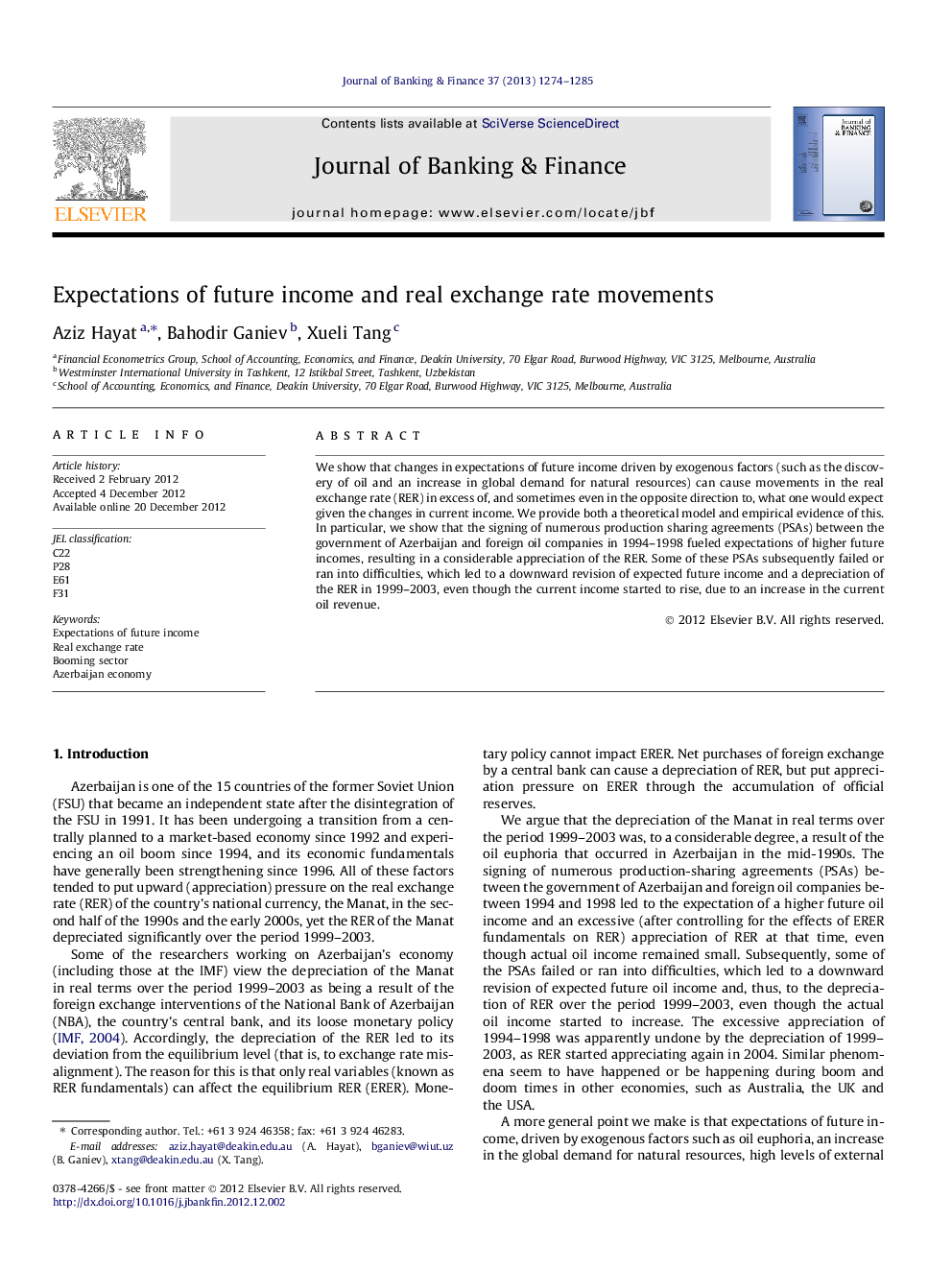| Article ID | Journal | Published Year | Pages | File Type |
|---|---|---|---|---|
| 5089684 | Journal of Banking & Finance | 2013 | 12 Pages |
We show that changes in expectations of future income driven by exogenous factors (such as the discovery of oil and an increase in global demand for natural resources) can cause movements in the real exchange rate (RER) in excess of, and sometimes even in the opposite direction to, what one would expect given the changes in current income. We provide both a theoretical model and empirical evidence of this. In particular, we show that the signing of numerous production sharing agreements (PSAs) between the government of Azerbaijan and foreign oil companies in 1994-1998 fueled expectations of higher future incomes, resulting in a considerable appreciation of the RER. Some of these PSAs subsequently failed or ran into difficulties, which led to a downward revision of expected future income and a depreciation of the RER in 1999-2003, even though the current income started to rise, due to an increase in the current oil revenue.
⺠We show that changes in the expectations of future income cause movements in RER. ⺠We provide both a theoretical model and empirical evidence for this relationship. ⺠We show that a resource boom can cause sharp fluctuations in RER. ⺠This happened in Azerbaijan in 1994-2004. ⺠We illustrate that similar phenomena are observed in other countries.
